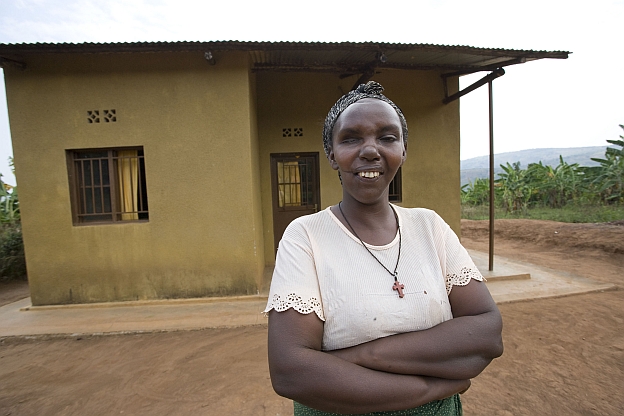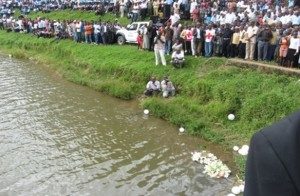
In trying to exterminate all Tutsis in Rwanda, perpetrators of the 1994 genocide also attempted to deny survivors any potential for viable futures by destroying and looting their homes, productive assets and crops. The genocide resulted in many homeless orphans and widows who were forced to live on the street or in inadequate, unsafe and overcrowded housing. With difficulties in finding the means to pay rent, they often fall prey to abusive landlords. Many suffer from depression and isolation and frequently family members are not able to find places where they can live together and support each other. It is hard for them to move forward without more personal security and a greater sense of belonging, mutual support and opportunity.
Provision of secure housing is essential to survivors’ livelihoods and future. IBUKA recognises shelter as one of the most pressing priorities for survivors today. SURF continues to build houses for survivors, despite our limited budget to do so.
In recent years, an increasing number of orphaned survivors have experienced difficulties resulting from family members claiming and selling off houses that are rightfully their own. A Compensation Law for survivors of the genocide, which would have enshrined rights of succession to land and property for orphans and widows, was approved by the Council of Ministers but it was withdrawn by the Ministry of Justice before it could be debated by the Parliament in 2002. This has resulted in many genocide orphans being legally as well as physically vulnerable.
It is estimated that there are 28,904 orphans living in households headed by children and 39,685 survivors that are without adequate shelter as of 2007. The National Assistance Fund for Vulnerable Genocide Survivors (FARG) claims to support over 37,000 survivors with grants for shelter, but the allocation of funding and materials has been greatly criticised as been largely ineffective and plagued by corruption at a district level. Support for shelter to survivors will be phased out by FARG in the next 2 years (once the remaining 3,000 survivors eligible for shelter support receive funding).
The National Council of Refugees (now under the Ministry for Disaster Management and Refugees (MIDIMAR)) provides access to shelter for returnees to Rwanda (mainly the 70,000 refugees still living in DRC and Uganda). The National Social Protection Strategy (NSPS) states that the next two decades will see increased investment by government in housing – to make certain that the most vulnerable households are provided with a minimum standard of shelter. However, the NSPS does not detail the minimum standard nor determine how it will assess vulnerability.
Ultimately the need for adequate housing for survivors remains critical, and still requires significant investment if it is to be addressed. Survivors Fund (SURF) will continue to campaign for survivors, in particular those whose houses were destroyed during the genocide, to be prioritised for housing as a matter of restorative justice.
[1] FARG is the National Assistance Fund for Vulnerable Genocide Survivors which the Government of Rwanda commits 6% of the annual budget (in 2011, around $ 18 million) to support primarily education projects.

